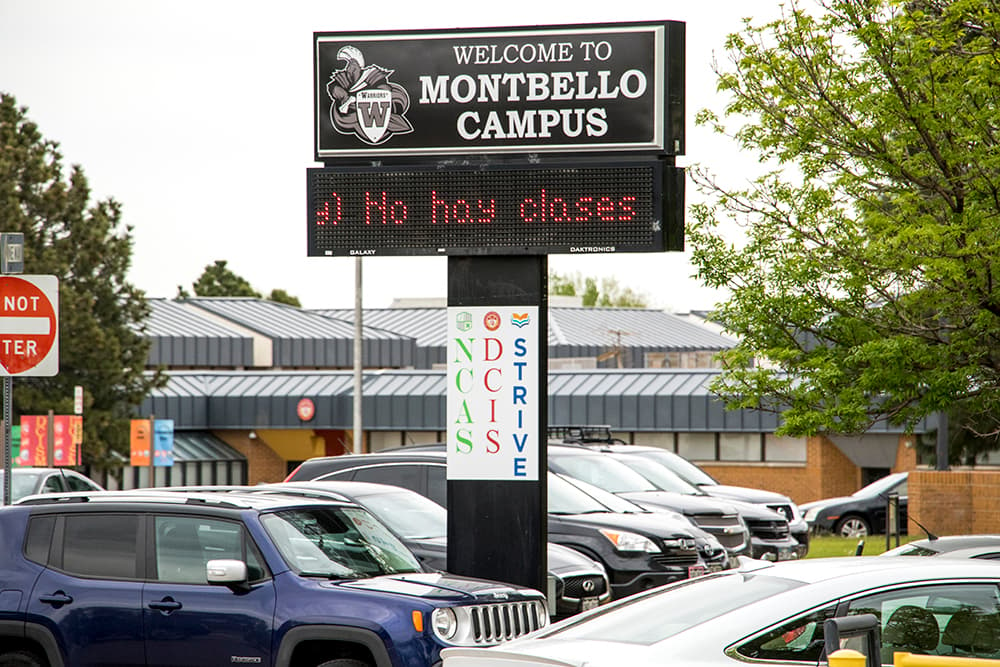Over the last seven years, the Center for Disease Control has issued grants totaling nearly $12 million to conduct research in Denver's Montbello and Park Hill neighborhoods. The goal is to establish best practices for reducing youth violence in these communities and communities like it.
"At the high CDC level, the idea is they're funding these sites to do extensive research on youth violence and they can then disseminate that information to other communities," David Bechhoefer, project director for Steps to Success, said.
He said there are just a handful of cities and neighborhoods throughout the country where this research is being done. Here, two organizations -- Park Hill Strong and Steps to Success Montbello -- have been set up to help facilitate "community driven processes to reduce youth violence," according to Bechhoefer.
With that in mind, Dec. 4 at Trina's Place, Steps to Success will be hosting "One Montbello," which they hope will bring a sense of unity and awareness to the direction of the neighborhood.
"One Montbello is about [the idea that] we're stronger together we need to bridge some of the breaches in our community between different racial groups, different ethnics groups," Bechhoefer said. "We want to bridge some of the divides in our community and get more community members attached to this community."
Terry Liggins, a community advocate, who serves on the board of directors for Steps to Success says that bringing awareness to the overarching theme of the program and its efforts will help foster collaboration between groups working toward similar goals.
"A lot of the organizations in Montbello, nonprofits and folks, there was actually a lot of us working in silos. Now this is an opportunity for us to work together," Liggins said.
"They're really good with when there's people having different opinions," she said. "I think the campaign has really pushed down lower into the grassroots."
She believes that in the changing Montbello neighborhood, the event will allow residents to get involved with their area and help shape it into what they want it to become going forward.
"There's statistics that are showing that there's a lack of community engagement and so what we're trying to do is bring about that feeling of engagement of community," Liggins said.
The program also comes with mini-grants for grassroots-level organizations to continue to their work. Bechhoefer hopes to bring those opportunities to the attention of organizations that would have otherwise not known about this potential funding avenue.
These programs began when the Center for the Study and Prevention of Violence at CU Boulder brought the project to the attention of then-Mayor John Hickenlooper, who directed them to partner with the Denver Crime Prevention and Control Commission. Together, they determined these neighborhoods that would be a good fit out of the seven neighborhoods that fit the bill.
For the first five years, the initial funding and proposal positioned Montbello as the test site to measure the effectiveness of their intervention efforts and Park Hill as the control site that they would measure their impact against. That process led to the creation of Steps to Success Montbello back in 2011. Although much of the nearly $6 million dollars in funding was funneled towards research costs, the organization also works to issue mini-grants to grassroots-level organizers and to support programs that promote preemptive measures to curbing youth violence.
After that five-year cycle ended in 2016, the CDC re-awarded the same grant to the project and that allowed them to move Park Hill from being a control site to becoming another test site like Montbello.
Although the focus of the programs is on reducing youth violence, Bechhoefer says their impact will likely spread beyond any one particular category.
"Our thing is youth violence. But we are so far on the prevention side that it also impacts other areas such as substance abuse and teen pregnancy," Bechhoefer said.
One of the most effective Steps to Success programs has been Strengthening Families, a program meant to teach families about healthy conflict resolution practices, he said. The organization believes that if they can teach better practices in the community at the family level the long-term impact will be an overall reduction in youth violence. For the 200 families that have gone through the program, the exit surveys say they have found it quite helpful, but Bechhoefer says it's still unclear if they've made any impact on the macro scale in the community.
"We're uber on the prevention side," he said. "We think by reducing family conflict that reduces youth violence overall. The data says maybe we've had impact but there's still an uptick in gang violence so we're still trying to figure that out."














